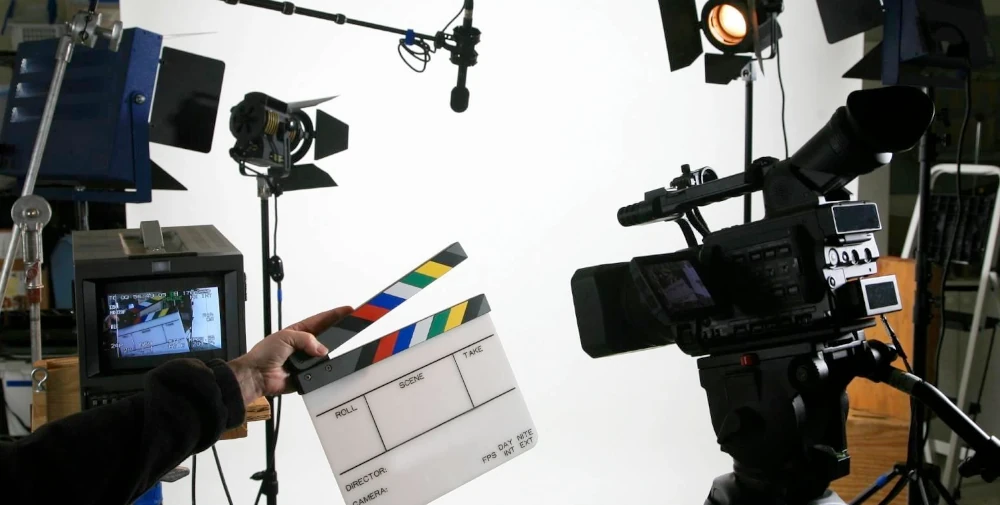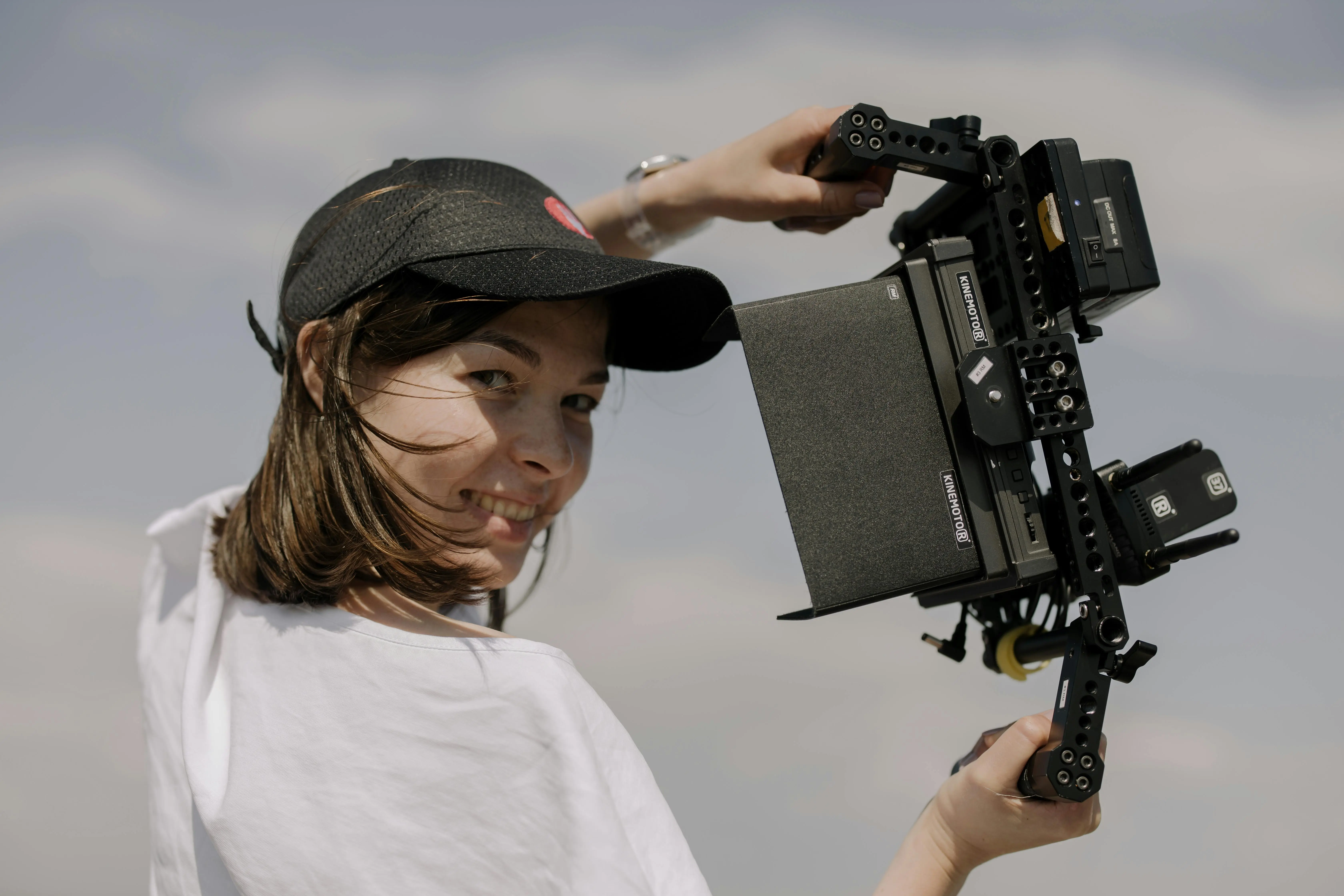
Best Camera for Beginner Filmmakers: 5 Top Picks
Filmmaking is more accessible today thanks to affordable, high‑quality cameras. Whether you’re a student, aspiring YouTuber, or storytelling enthusiast, choosing the best camera for beginner filmmakers means finding the right balance of price, performance, and ease of use. In this guide, you’ll discover top beginner filmmaking camera options for 2025 that are budget‑friendly, powerful, and intuitive.
Which models should you, therefore, take into account in 2025, and what makes a camera perfect for novices in filmmaking? Let us now delve deeper.
Search for a beginner filmmaking camera for what you need.
Especially for beginners, it’s crucial to know the characteristics that make a camera fit for filming before suggesting certain models:
1. Video Content
Although 4K is now the norm for future-proofing your material, a decent starting camera should at least capture 1080p (Full HD). Search for cameras allowing 4K at 24, 30, or even 60 fps (frames per second).
2. Handheld Controls
Learning more about filmmaking will make you want to manage exposure, focus, white balance, and frame rate. You will develop artistically using a camera with manual options.
3. Interchangeable Viewpoints
Although not necessary, having the ability to change lenses lets you play around with cinematic styles, focal lengths, and depth of field.
4. Audio Views
As important as video is good audio. Search for a camera with maybe a headphone jack for sound monitoring and a microphone input.
5. Easy of Use and Portability
If you’re recording alone or on location, a lightweight camera with easy menus can simplify your life.
6. Cost of Living
Many times, novice filmmakers are not interested in breaking the budget. For a top-notch entry-level system, a price range between $500 and $1,200 makes sense.
Best 5 Camera for Beginner Filmmakers in 2025 – Affordable
These are some of the greatest beginner-friendly cameras, as they provide a good combination of price and functionality.
1. Canon EOS R50 costs around $700 with a kit lens.
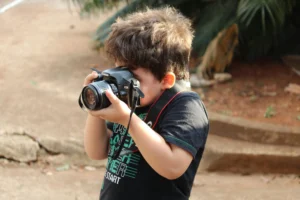
The Canon camera EOS R50 costs around $700 with a kit lens, offering great video quality and ease of use for beginners.
- Resolution: 4K without cropping up to 30 fps
- APS-C as the sensor.
- Audio Input: Sure
Why It’s Fantastic:
Excellent picture quality and smooth 4K video abound from the mirrorless Canon R50 camera. It has simple touchscreen controls and is low-weight. Its clever auto modes will appeal to beginners who do not yet have space to develop using manual settings.
2. Sony ZV-E10: About $750 (kit lens)
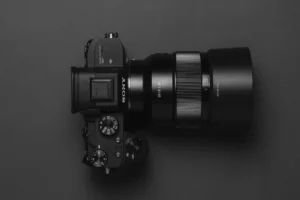
- Resolution: 4K at 30 fps; 1080p at 120 fps
- sensor: APS-C
- Audio Input: Yes, with a built-in directional microphone
Why is it great?
Designers of the Sony ZV-E10 especially consider content providers. For vloggers and YouTubers especially, it has improved focusing, interchangeable lenses, and Product Showcase Mode. It’s quite flexible and user-friendly.
3. Panasonic Lumix G100; cost around $600.
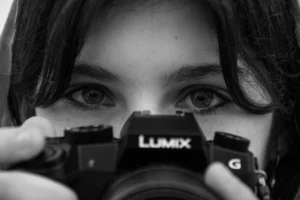
- Full HD at 60 fps and 4K at 30 fps.
- Micro Four Thirds are the sensor.
- Audio input: Yes + OZO Nokia
Why It’s Excellent:
Powerful for cinematic video as well, the Lumix G100 is a small, vlogging camera. Its clever audio-capturing technique and lightweight construction make it perfect for trip filmmakers and solitary shooters.
4. Fujifilm X-S10: Body alone price around $1,000.
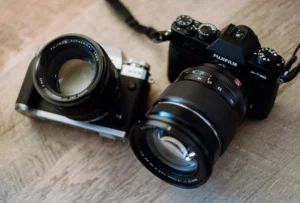
- Resolution: 4K up to 30 fps, 1080p @ 240 fps (slow-motion).
- sensor: APS-C
- Audio Input: Sure
Why It’s Wonderful:
The Fujifilm X-S10 blends modern technology with nostalgic sensibilities. It has in-body stabilization (IBIS), unusual in this price range but ideal for handheld photography. Its film simulation systems offer videos a cinematic flair right out of the camera.
5. The Blackmagic Pocket Cinema Camera 4K is around $1,200 (body alone).
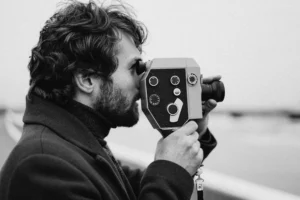
- 4K DCI ranging from 60 fps
- Micro Four Thirds as the sensor
- Mini XLR plus 3.5mm audio input
For those who are somewhat more serious about filming, the BMPCC 4K has amazing cinematic quality, RAW and ProRes recording, and professional audio choices. If you’re looking for the best camcorder, check out other great options that cater to different filmmaking needs. Though not as beginner-friendly as the others, learning will help you to advance your work.
Top 5 Cameras for Beginner Filmmaking (2025)
| Camera | 4K Capable | Audio Input | Stabilization | Price (approx.) |
|---|---|---|---|---|
| Canon EOS R50 | Up to 30 fps (uncropped) | Yes | No | $700 (kit) |
| Sony ZV‑E10 | 4K 30 fps, 1080p 120 fps | Yes (dir. mic) | No | $750 (kit) |
| Panasonic Lumix G100 | 4K 30 fps, 1080p 60 fps | Yes (OZO audio) | No | $600 |
| Fujifilm X‑S10 | 4K 30 fps, 1080p 240 fps | Yes | IBIS | $1,000 (body) |
| Blackmagic Pocket Cinema Camera 4K | 4K DCI 60 fps (RAW/ProRes) | Mini XLR + 3.5mm | Yes | $1,200 (body) |
Advice for First-time Filmmakers
Just one piece of the jigsaw is having the correct camera. Here are some extra pointers:
1. Make audio investments.
Bad audio ruins your video regardless of its quality. Think about getting a Rode VideoMic or Deity V-Mic D4 Duo external microphone.
2. Leverage a tripod or gimbal.
Shifting your pictures helps to stabilize your images generally. Essential and reasonably priced are tripods. Gimbals are more sophisticated but with dynamic movement.
3. Master Lighting and Composition.
Study three-point lighting and the fundamentals of framing—including the rule of thirds. These principles improve even budget footage.
4. Edit with Care
Cut your video, add music, and fix colors using free or reasonably priced programs such as DaVinci Resolve, Adobe Premiere Rush, or iMovie. To learn more about how to edit videos effectively, check out these detailed guides.
5. Try Often
You learn more the more often you shoot. To practice, try short scenarios, interviews, or daily vlogs.
FAQs
1. What is the best camera for beginner filmmakers in 2025?
The Canon EOS R50 and Sony ZV-E10 offer 4K video, user-friendly features, and excellent value for beginners.
2. Do I need a 4K camera as a beginner filmmaker?
Not required, but 4K provides better quality, flexibility in editing, and long-term value.
3. What’s better for beginners—DSLR or mirrorless cameras?
Mirrorless cameras are lighter, faster, and better suited for beginner filmmakers.
4. What features should a beginner filmmaking camera have?
Key features include 4K video, manual settings, external mic input, flip screen, and autofocus.
5. Can I start filmmaking with a smartphone instead of a camera?
Yes, with manual video apps and a good mic, smartphones can be a great way to start.
Conclusion
Your objectives, style, and money will all affect the ideal beginning camera for filmmaking. There’s a camera out there that will help you get started without overloading you, whether you’re creating trip vlogues, YouTube material, or short films. For most novices, the Canon R50 and Sony ZV-E10 are good picks, yet even a smartphone may start your creative path if utilized sensibly.
Storytelling is what counts, really; the camera is just a tool. Choose your equipment, then start firing and let your imagination flow.
